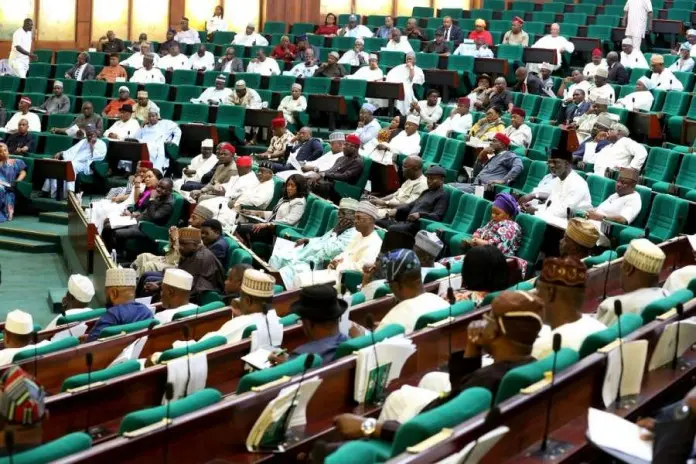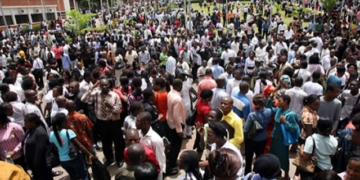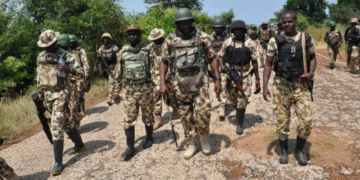As you settle into office, Honourable House Committee Chairman, Sir Tochukwu Okere, I note with optimism that you have commenced a consultation round with Diaspora Stakeholders. This can only mean that you have a desire to understand the Diaspora landscape, know the issues and challenges as well as the opportunities and prospects. This is normal approach. But not in Nigeria! Take it from a confirmed source that as basic as this gesture is, those before you have never taken off in this manner. In Nigeria, we are used to commending people for doing the job for which they are paid. I’m sure you don’t want me to do that. Instead let me congratulate you for a start on your new appointment.
I want this note to be as brief as possible. I will therefore be short on details and precise on facts but ready to engage further in areas requiring expatiation. To provide the basis for the dynamics that led us to where we are on Nigerian Diaspora affairs and to where we are going, I will crave your indulgence to precede it with a paintbrush of the Pre-2000 era.
Pre-2000 Era of Nigerian Diaspora Affairs
Historically, the first poll of Nigerian Diaspora left the shores of the country for study purposes. Vast majority returned; a few stayed back for family reasons, including marriage to host country nationals, raising a family, and career related matters. The initial poll of migration out of Nigeria was added to by the civil war induced migration, some forced, others sponsored again for study purposes. Return and remain pattern, post studies was same as the pioneer group. Forced migration linked to military misrule, economic hardship, could be considered as the third wave of Nigerian Diaspora build-up in Europe and the United States. This was underscored by Nigerian exiles, fugitives, refugees and asylum seekers.
The major take away from this Nigerian Diaspora era is that these sojourning citizens were loosely organised along ethnicity, political, and pressure group lines. There was no formal link with the Government of Nigeria. Understandly so because of the low trust level or complete absence of it. The infamous Umaru Dikko London abduction saga explains enough.
Post-2000 Era
Following the return to civil rule after the 1999 elections, there was a realisation of the quantum and quality of Nigerian Diaspora across the globe. A major characteristic of the group is that they were still organised along ethnicity and interests. In itself, not a huge problem except that they were often in competition, not collaboration, with one another. There was also absence of a formal channel of communication with Government. Given the deep division within the Diaspora on how to be formally organised, the touring President-Elect, Chief Olusegun Obasanjo, decided to have series of Millennial Assemblies of Nigerians in the Americas and in Europe on assumption of office. The two main questions to resolve were: should Government adopt / recognise a single existing organisation as the official partner of government on Diaspora affairs or make a clean start with a new entity? The verdict of the Conferences attended by thousands of Nigerians anxious for a reinvigorated engagement with fatherland was overwhelmingly to make a clean start. There lies the birth of Nigerians in Diaspora Organisation (NIDO).
The challenges
The establishment of NIDO quickly threw up a few challenges, some of which are inevitable while others are man-manufactured and therefore avoidable.
For a start, some strong influential, perhaps recalcitrant voices against establishment of NIDO never gave up their opposition, despite the fact that the decision was a democratically and organically taken one. The NIDO opposition group was joined by some early NIDO enthusiasts who could not play the NIDO democratic politics, having gotten used to the partriarchic organising model prevalent in community organisations. They felt more comfortable opting out of NIDO to compete with it. Government officials and political office holders tasked with supporting NIDO or mandated to do so equally have pro-NIDO and anti-NIDO forces.
The most important conclusion to draw at this point is that the best performing Chapters of NIDO are in jurisdictions where there is a supportive Ambassador. Ukraine and later Switzerland come to mind. NIDO is also known to have made the most progress in times when political office holders underwrite the notion of relating with NIDO as the official body and encouraging other groups to collaborate rather than compete with it. We must equally take something away from the fact that the passage of the Act for the establishment of the Nigerians in Diaspora Commission (NIDCOM) into law (a Bill) took place during the 8th Assembly under a House Committee Chairman that honoured without reservation, government policy of establishing a formal channel of communication with the Diaspora through NIDO.
The elephant in the room
I make bold to ask, Honourable Chairman House Committee on Diaspora, how do you wish to be remembered? This question is the elephant in the room. There are two broad options open to you, organisationally and legislatively, if you ask me.
On the organisational side of the ledger, you could have your time in office be associated with an era in Nigerian history that got the Nigerian Diaspora equitably organised. Yes, NIDO is as of today the official representative of the Diaspora but who says that the representation as it is today is cast in concrete and can’t be reviewed and made more wholesome for Nigeria. I’m sure your round of consultations is giving you indications of necessary reforms. Is there a reason your time in office can’t be credited with transparently organising the Diaspora table boldly and audaciously? Yours must be an era when a political office holder is a Diaspora galvaniser rather than a champion of divide and rule. Your era could be one that sees an organised Diaspora population not as a threat to your personal ambitions but a value adding asset to Nigeria.
On the legislative side of the ledger, history beckons you my Honourable Chairman House Committee on Diaspora to end the current impunity and rascality whereby the Bill establishing the Nigerians in Diaspora Commission stipulates that there shall be a Board with 12 Diaspora members yet four years since its establishment, no such Board exists. Maintaining a cordial working relationship with NIDCOM is absolutely desirable for your Committee but so too is a good relationship with the target group of the policy you are meant to provide oversight for. You must resist any attempt by any side of these entities to pitch you against the other. You need no permission from NIDO to relate with NIDCOM and vice versa. Your independence of mind and thought in the execution of your oversight function will be critical to your success as Chairman House Committee on Diaspora.
Still on the legislative plank, I am aware that most people anchor their arguments for Diaspora Voting on the US$23 Billion (on the average) of annual Diaspora Remittances. While this is substantial, Diaspora remittance remains today a welfare, consumption capital. As House Chair you can change that into investment capital through bonds, infrastructure investment fund, and so forth. Beyond that, I happen to believe that the strongest argument for Diaspora Voting is that not making it happen is antithetical to democracy, if not an affront to the rule of law. Making it happen will equally help to unlock the hidden potentials for accelerating national development of Nigeria using the assets that the Diaspora brings to the table. Above all, history will have your name and those of your House Committee members engraved in gold if the 10th Assembly by your intentional leadership makes Diaspora Voting a reality.
Nweke is an Opinion Maker columnist of The Brussels Times and Foreign Policy Commentator/Global Affairs Analyst











